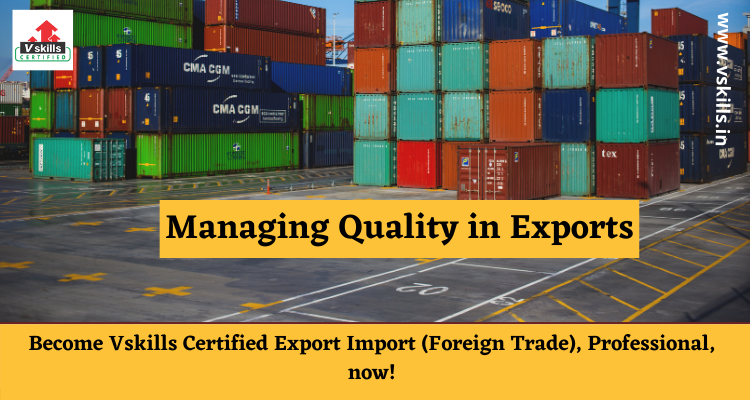Managing Quality in Exports
Let’s learn more about Managing Quality in Exports. Economic studies have discovered that meeting quality, delivery and cost requirements is the only long term method for success. Export promotion is vitally linked to economic development and unless a country exports quality goods and services meeting customer requirements, there can be no steady economic growth. No enterprise can afford to compromise on quality if it is to establish a good image for its products and for its country. A single consignment of inferior quality can tarnish the good name of the exporter and the country as a whole.
Quality management ensures that an organization, product or service is consistent. It has four main components: quality planning, quality assurance, quality control and quality improvement. Quality management is focused not only on product and service quality, but also on the means to achieve it. Quality management, therefore, uses quality assurance and control of processes as well as products to achieve more consistent quality. What a customer wants and is willing to pay for it determines quality. It is a written or unwritten commitment to a known or unknown consumer in the market. Thus, quality can be defined as fitness for intended use or, in other words, how well the product performs its intended function.
Quality control is a process by which entities review the quality of all factors involved in production. This approach places an emphasis on three aspects
- Elements such as controls, job management, defined and well managed processes, performance and integrity criteria, and identification of records
- Competence, such as knowledge, skills, experience, and qualifications
- Soft elements, such as personnel integrity, confidence, organizational culture, motivation, team spirit and quality relationships



